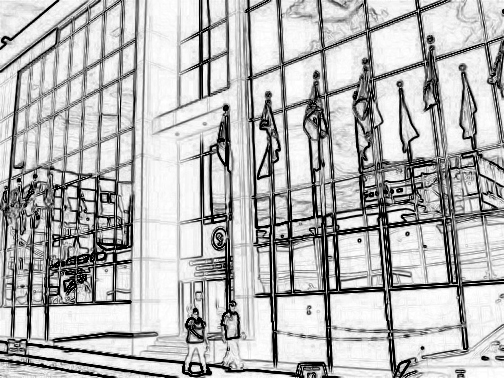By Ramesh Sujanani
Op-Ed Contributor
There is a great mistrust among the peoples of CARICOM. The average Trinidadian does not trust the average Jamaican, nor do Jamaicans trust the Bajans, especially since the Myrie incident which is in court.
I do not believe, as Jamaicans, that we have a problem with the smaller-islanders, and countries less populated, like Guyana. Trinidad is our main trust problem. We are watching them, and they are watching us.
At this time, Trinidad which houses the premises of the Caribbean Court of Justice in Port of Spain, has indicated it has no intention of joining the CCJ beyond its recently-expressed desire to accede to the court for criminal cases.
To add to these conflicts, are the motives of Politicians, which all people mistrust; is what we saw in the Jamaican Referendum of 1962, where the concept of Federation was thrown out by the people of Jamaica.
I do not believe we have a racial problem in Jamaica similar to that of Trinidad because the country’s ethnic minorities are small compared to the total population.
The business people do what they always do; verify each other by similar standards; occasionally they are wrong, as in the instance where a large Trinidadian Conglomerate, bought into a local rum producer, and found out that it (the Conglomerate) did not have the resources.
So the first query comes up mooted by the Jamaica Labour Party: “If we did the referendum then, why don’t we do it now, with the same parameters.”
“No” says the People’s National Party, “because we lost then, and we may lose the government again, and this time might not recover.”. (These are all my expressions, and may not underline the compelling reasons behind the stalemate.)
Our eminent jurist, Senator AJ Nicholson, opines that the CCJ be entrenched in the Constitution, so to at least satisfy the amendment section of this document which requires changes (amendments) only by a process of referendum. Section 49 of the Constitution would then protect it from being changed ad hoc by officials of any Governing Party.
Senator Nicholson further states that the opposition JLP, by pushing for a referendum just months after elections, “wish for Jamaica to go where all others have feared to tread.” The two remarks are at odds with each other, unless we wait and go small measure at a time, and correct faults by experience as we go along, which I believe is the ultimate solution.
There are a few objections from the politicians, and social scientists. “Do we have enough Judges to fill the vacant benches?” “Why don’t we have more East Indian Judges since they constitute a plurality in Trinidad and Guyana?” “Are the cases being adjudicated properly, and in a timely fashion?” “Are the judges sufficiently familiar with criminal law, to process criminal cases?” These need to be reconciled by the new Chief Justice of the CCJ.
What about the British Privy Council? We have had no problems there save the travel costs to and fro Great Britain, and accommodations for attorneys, for there are no costs for adjudication. Now, Jamaica supports the CCJ to the reported amount of US$3.07 million per year, and is the largest financial contributor, yet Jamaica is still not yet a member of the board. I gather that some US$21 million has been given to support the court since it started.
How is the record of the CCJ thus far (from 2005)? The retiring chief Justice of the CCJ, Justice de la Bastide recently paid tribute to those persons who have been instrumental in setting up the operations of the court. He particularly was pleased that to date there has been no influence from the business sector, or any political persons, and has operated with utmost integrity; which can be considered excellent. Sir Charles Michael Dennis Byron is now the chief justice.
But the most recent anguish is the case of Shanique Myrie, a Jamaican woman who reported ill treatment by Barbados Immigration officers while travelling through that Country.
The matter could easily have been handled by a Bajan Court, but this has raised questions about commitment to CARICOM and the CCJ, so it has been referred to the CCJ for investigation and adjudication.
What is the answer? I would suggest we move along cautiously, giving CCJ what it can manage, while keeping the Privy Council for new and stubborn cases. Then, we make the decision to go one or the other, though I am not sure what would happen if one of the litigants is Trinidad and Tobago. Then they would have to join the CCJ partnership completely to reconcile potential differences.
Ramesh K Sujanani can be reached at rsujanani78@gmail.com.
Note: the opinions expressed in Caribbean Journal Op-Eds are those of the author and do not necessarily reflect the views of the Caribbean Journal.
